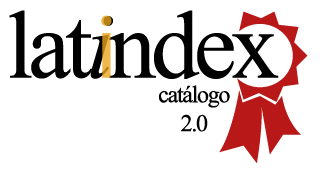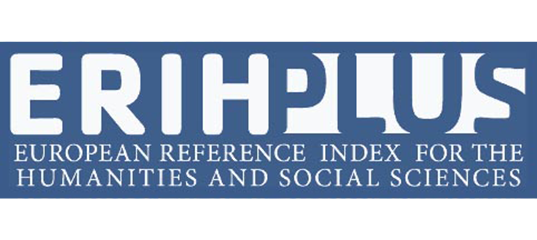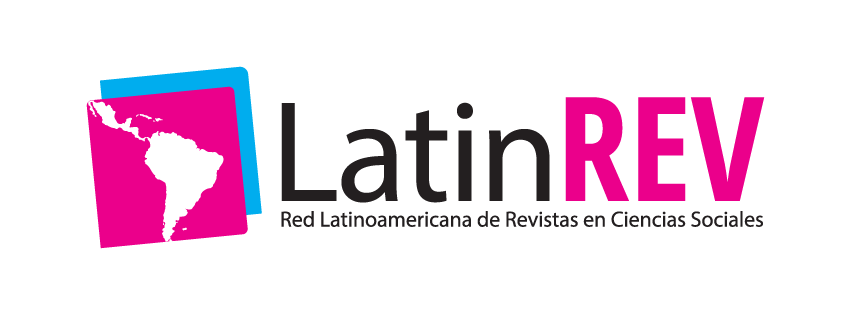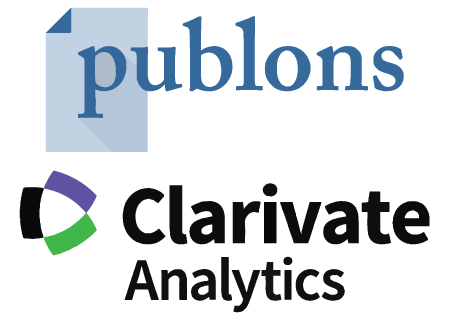Ecosystem technologic for the development of the professional skills of the educational sideways agricultural thing
Abstract
An ecosystem is a community of being alive whose vital processes are interrelated and your development is based on the factors physical of the halfback gives atmosphere. The definition of the technologic ecosystem varied from a few authors to others, but all are in agreement with a fundamental point: there is a clear report between the characteristics of a natural ecosystem and a technologic ecosystem in whoever of your variants. The TIC past use in educational processes characterized for automation, that conducted to the development of platforms for the formation (LMS). However, the present is being the protagonist of for the integration, in which the challenge is in connecting and relate the different tools and services for the educational labor, and whose last result is ecosystems technologic, useful because of offer semantic interpretability of your components for obtainer a major functionality and simplicity in the educational, educational process and especially in those of the apprenticeship. At present work, it is proposed as objective development a technologic ecosystem for the development of the professional skills of the educational sideways agricultural, in order to graft a potential for agrarian extensionism.
Downloads
Metrics
References
Bienkowski, M., Feng, M., & Means, B. (2012). Enhancing teach-ing and learning through educational data mining and learning analytics: An issue brief, 1–57. US Department of Education, Office of Educational Technology.
Buschmann, F., Meunier, R., Rohnert, H., Sommerlad, P., & Stal, M. (1996). Patternoriented software architecture: a system of patterns. Chichester: John Willey & Sons.
Chang, E., & West, M. (2006). Digital Ecosystems a Next Gen-eration of the Collaborative Environment. 8th International Conference on Information Integration and Web-based Application & Services.
CHEN, W., & Chang, E. (2007, 4-7 June). Exploring a Digital Ecosystem Conceptual Model and Its Simulation Prototype. Trabajo presentado en Industrial Electronics, 2007. ISIE 2007. IEEE International Symposium on.
Dhungana, D., Groher, I., Schludermann, E., & BIFFL, S. (2010). Software ecosystems vs. natural ecosystems: learning from the ingenious mind of nature Proceedings of the Fourth Eu-ropean Conference on Software Architecture: Companion Volume (pp. 96-102). New York, NY, USA: ACM.
Domingo, M.G., & Forner, J.A.M. (2010). Expanding the Learn-ing Environment: Combining Physicality and Virtuality-The Internet of Things for eLearning. 10th IEEE International Con-ference on Advanced Learning Technologies (ICALT).
European-Commission. (2006). Digital Ecosystems: The New Global Commons for SMEs and local growth.
Fidalgo-Blanco, Á., Sein-Echaluce, M. L., & García-Peñalvo, F. J. (2014). Knowledge Spirals in Higher Education Teaching Innovation. International Journal of Knowledge Manage-ment, 10(4), 16-37.
Fidalgo-Blanco, Á., Sein-Echaluce, M. L., & García-Peñalvo, F. J. (2014). Knowledge Spirals in Higher Education Teaching Innovation. International Journal of Knowledge Manage-ment, 10(4), 16-37.
García-Holgado, A., & García-Peñalvo, F. J. (2013). The evo-lution of the technological ecosystems: an architectural proposal to enhancing learning processes Proceedings of the First International Conference on Technological Ecosys-tem for Enhancing Multiculturality (TEEM’13) (Salamanca, Spain, November 14-15, 2013) (pp. 565-571). New York, NY, USA: ACM.
García-Holgado, A., & García-Peñalvo, F. J. (2013). The evo-lution of the technological ecosystems: an architectural proposal to enhancing learning processes Proceedings of the First International Conference on Technological Ecosys-tem for Enhancing Multiculturality (TEEM’13) (Salamanca, Spain, November 14-15, 2013) (pp. 565-571). New York, NY, USA: ACM.
García-Holgado, A., & García-Peñalvo, F. J. (2014a). Archi-tectural pattern for the definition of eLearning ecosystems based on Open Source developments. En J. L. Sierra-Rodríguez, J. M. Dodero-Beardo, & D. Burgos (Eds.), Proceed-ings of 2014 International Symposium on Computers in Edu-cation (SIIE) (Logroño, La Rioja, Spain, November 12-14, 2014) (pp. 93-98): Institute of Electrical and Electronics Engineers. IEEE Catalog Number CFP1486T-ART.
García-Holgado, A., & García-Peñalvo, F. J. (2016). Architec-tural pattern to improve the definition and implementation of eLearning ecosystems. Science of Computer Program-ming, 129, 20-34. http://dx.doi.org/10.1016/j.scico.2016.03.010
García-Holgado, A., & García-Peñalvo, F. J. (2017a). Defini-ción de ecosistemas de aprendizaje independientes de plataforma IV Congreso Internacional sobre Aprendizaje, Innovación y Competitividad (CINAIC 2017) (Zaragoza, Spain, October 4-6, 2017).
García-Holgado, A., & García-Peñalvo, F. J. (2017b). A Met-amodel Proposal for Developing Learning Ecosystems. En P. Zaphiris & A. Ioannou (Eds.), Learning and Collaboration Technologies. Novel Learning Ecosystems. LCT 2017. Lecture Notes in Computer Science (Vol. 10295). Cham: Springer.
García-Holgado, A., & García-Peñalvo, F. J. (2017c). Prelimi-nary validation of the metamodel for developing learning ecosystems Proceedings of the Fifth International Confer-ence on Technological Ecosystems for Enhancing Multicul-turality (TEEM’17) (Cádiz, Spain, October 18-20, 2017). New York, NY, USA: ACM.
García-Peñalvo, F. J., & García-Holgado, A. (Eds.). (2017). Open Source Solutions for Knowledge Management and Technological Ecosystems. IGI Global.
García-Peñalvo, F. J., Zangrando, V., García-Holgado, A., Conde, M. Á., Seone Pardo, A. M., Alier Forment, M., … Mi-nović, M. (2012). TRAILER project overview: Tagging, ecogni-tion and acknowledgment of informal learning experienc-es. Trabajo presentado en 2012 International Symposium on Computers in Education (SIIE), Andorra La Vella, Andorra. October 29-31, 2012. http://ieeexplore.ieee.org/stamp/stamp.jsp?tp=&arnumber=6403200
Gardner, H. (2011). Multiple intelligences: Reflections after thirty years. Washington, DC: National Association of Gifted Children Parent and Community Network.
Hernández-García, Á., & Conde, M. Á. (2014). Dealing with complexity: educational data and tools for learning ana-lytics. En: Proceedings of the Second International Confer-ence on Technological Ecosystems for Enhancing Multicul-turality (TEEM '14), 263–268. ACM, New York, NY, USA.
Laanpere, M. (2012). Digital Learning ecosystems: rethinking virtual learning environments in the age of social media. Trabajo presentado en IFIP-OST’12: Open and Social Tech-nologies for Networked Learning, Taillin.
Latorre Beltran, A. (2003). La investigación-acción: Conocer y cambiar la práctica educativa (Vol. 179): Grao.
Lerís, D., & Sein-Echaluce, M.L. (2011). La personalización del aprendizaje: un objetivo del paradigma educativo cen-trado en el aprendizaje. Arbor: Ciencia, pensamiento y cul-tura, 187(Extra 3), 123–134.
Lewin, K. (1946). Action research and minority problems. Jour-nal of social issues, 2(4), 34-46.
Llorens, F., Molina, R., Compañ, P., & Satorre, R. (2014). Techno-logical Ecosystem for Open Education. En: R. Neves-Silva, G.A. Tsihrintzis, V. Uskov, R.J. Howlett & L.C. Jain (Eds.), Smart Digital Futures 2014.Frontiers in Artificial Intelligence and Applications, Vol. 262, 706–715. IOS Press.
Long, P. D., & Siemens, G. (2011). Penetrating the Fog: Analyt-ics in Learning and Education. EDUCAUSE Review, 46(5), 31–40.
Lungu, M. F. (2008). Towards reverse engineering software ecosystems. Trabajo presentado en Software Maintenance, 2008. ICSM 2008. IEEE International Conference on.
Lungu, M. F. (2009). Reverse engineering software ecosystems. Università della Svizzera italiana.
MENS, T., CLAES, M., GROSJEAN, P., & SEREBRENIK, A. (2014). Studying evolving software ecosystems based on ecologi-cal models. En T. Mens, A. Serebrenik, & A. Cleve (Eds.), Evolving Software Systems (pp. 297-326). Berlin, Heidelberg: Springer.
Pata, K. (2011). Meta-design framework for open learning ecosystems. Trabajo presentado en Mash-UP Personal Learning Environments (MUP/PLE 2011), Open University of London.
Phillips, R., Maor, D., Preston, G., & Cumming-Potvin, W. (2012). Exploring Learning Analytics as Indicators of Study Behav-iour. Paper presented at the World Conference on Educa-tional Multimedia, Hypermedia and Telecommunications 2012, Denver, Colorado, USA.
Posñak I.P. y Malashevich V.V. (1979). La organización y me-todología de la enseñanza en las escuelas de formación técnico profesional. Ciudad de la habana. Cuba: Editorial Pueblo y Educación.
Retalis, S., Papasalouros, A., Psaromiligkos, Y., Siscos, S., & Kargidis, T. (2006). Towards networked learning analytics—A concept and a tool. Proceedings of the Fifth international conference on networked learning.
UNESCO. (2005). UNESCO World Report: Towards Knowledge Societies. Paris: UNESCO Publishing.
WOOD-HARPER, T. (1985). Research methods in information systems: using action research. Research methods in infor-mation systems, 169-191.
Yu, E., & Deng, S. (2011). Understanding Software Ecosystems: A Strategic Modeling Approach. En S. Jansen, J. Bosch, P. Campbell, & F. Ahmed (Eds.), IWSECO-2011 Software Eco-systems 2011. Proceedings of the Third International Work-shop on Software Ecosystems. Brussels, Belgium, June 7th, 2011. (pp. 65-76). Aachen, Germany: CEUR Workshop Pro-ceedings.
PDF (Español (España)) 422
Authors maintain the rights to the articles and are therefore free to share, copy, distribute, execute, and publicly communicate the work on their personal websites or in institutional deposits, after its publication in this journal, as long as they provide bibliographic information that certifies its publication in this journal.
The works are under one https://creativecommons.org/licenses/by-nc-nd/4.0/




























